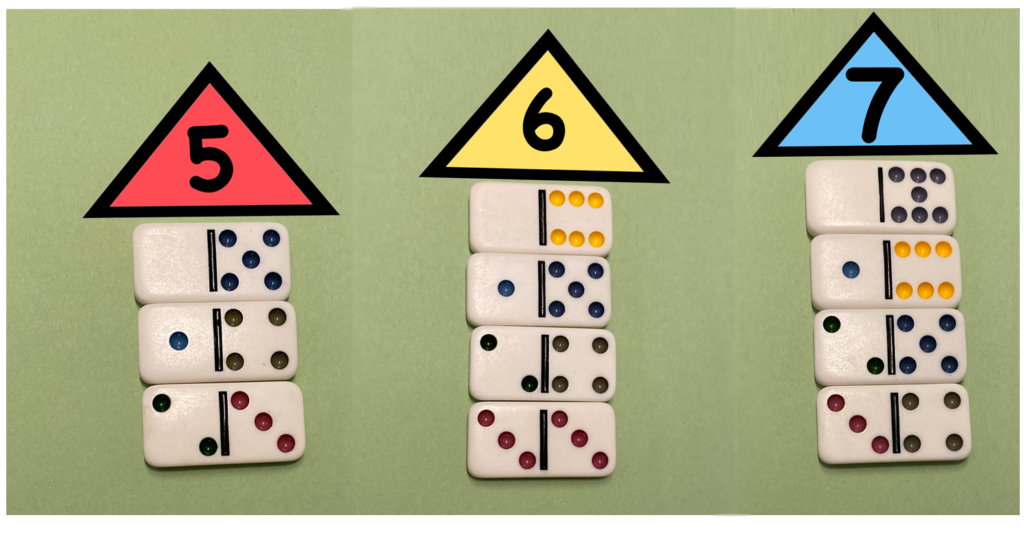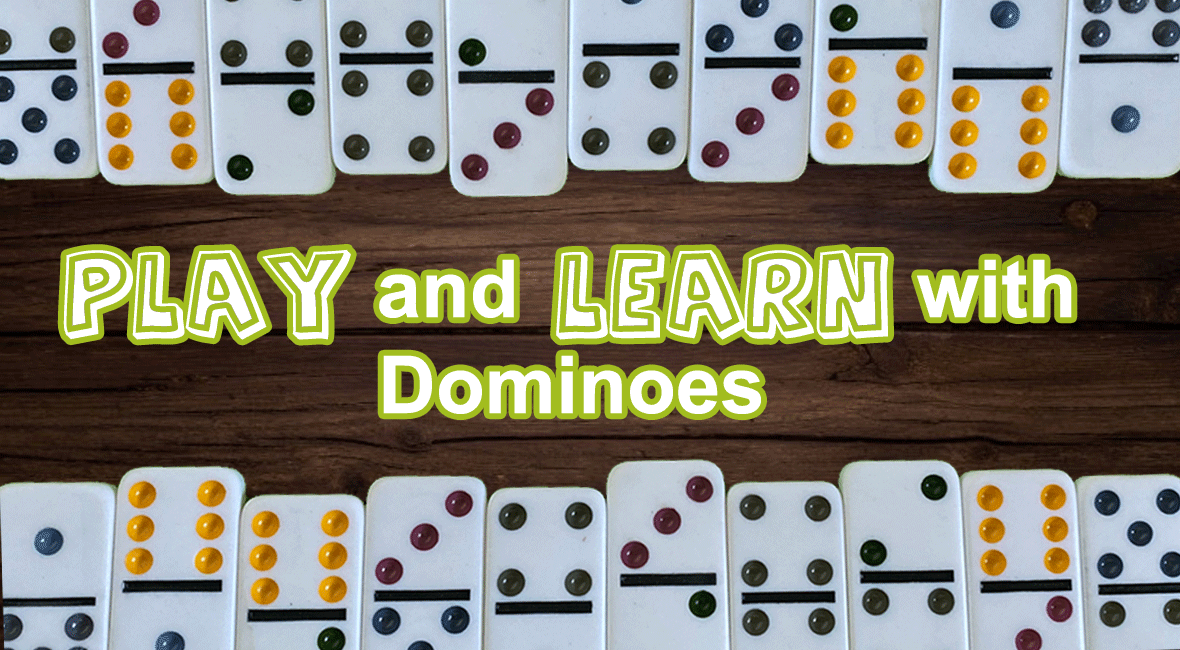Dominoes are great for practicing math and they should be in every primary class as they are an excellent tool for primary students to use. They are also a useful tool for practicing at home. There are many activities you can do using dominoes to model decomposition of numbers and help build student knowledge of addition facts. We will share with you our favorite activities and games using dominoes.
Number Houses
A good activity for the k-2 students is to build Number Houses. Addition Number houses look like this. The roof has a special number and the house is made of pairs of numbers that give that sum. Students will draw objects on each pair of bricks to make a sum of 5.

A variation of this activity is to give sum roofs (paper pieces) to the students and ask them to build the houses using dominoes as bricks. They need to find the correct domino tiles from their pile so it becomes a discovery activity. The students can work in pairs. Then, they can go ahead and write their brick pairs as number sentences. You can also ask them to build the houses using tiles that make the roof number using subtraction.

Some houses are bigger than others. Some are high-rise buildings! You can prepare different color bags and separate the tiles according to how big the numbers are. For example, the red bags are for making sums 1-6 and the blue 6-12. This activity can turn into a great math station where the teacher can place new roofs every day. Once the students are very comfortable with this concept the activity can turn into a competitive game between pairs or teams. The teams or pairs of builders get a roof and they compete as to which one will build the house faster, or which one will build more complete houses. A lot of ideas to modify and include in your math practice at school and at home.
Lucky Roll
Decide what is the greatest sum you want the students to add and pick out the domino tiles that that go up to that sum and 2 dice. Every student takes 4 domino tiles. The players take turns rolling the dice. After every roll, the players look at their tiles for one that has the same sum as the dice roll. If they find one or more they put them down in the middle to show the others and then discard them. If the combination of the dice matches the combination of the tile then they get a bonus and they are allowed to roll again. For example, if the dice shows 5 and a 6 and the tile also has a 5-6 combination. The game continues until one player discards all their dominoes. That player is the winner. The students can play with greater numbers on tiles using different dice. D6 up to 12, D8 up to 16, or D 10 dice up to 20. You can find this dice on Amazon. I use this set for many other activities as well. You can also build your own set of dice.
Greater than
Every player takes 6 tiles. The players keep their tiles hidden from the opponents. Every time the players put in the middle one tile turning it face up. The greater sum wins. The other tiles are out. The game continues until only one player is left with tiles. The game can be played with the difference (subtraction) instead of sum. The players can decide that the smallest sum wins or alternate between the two.
Let us know if your children/students like these games. Share any variations with us.
Check out more games and activities with dominoes here.

